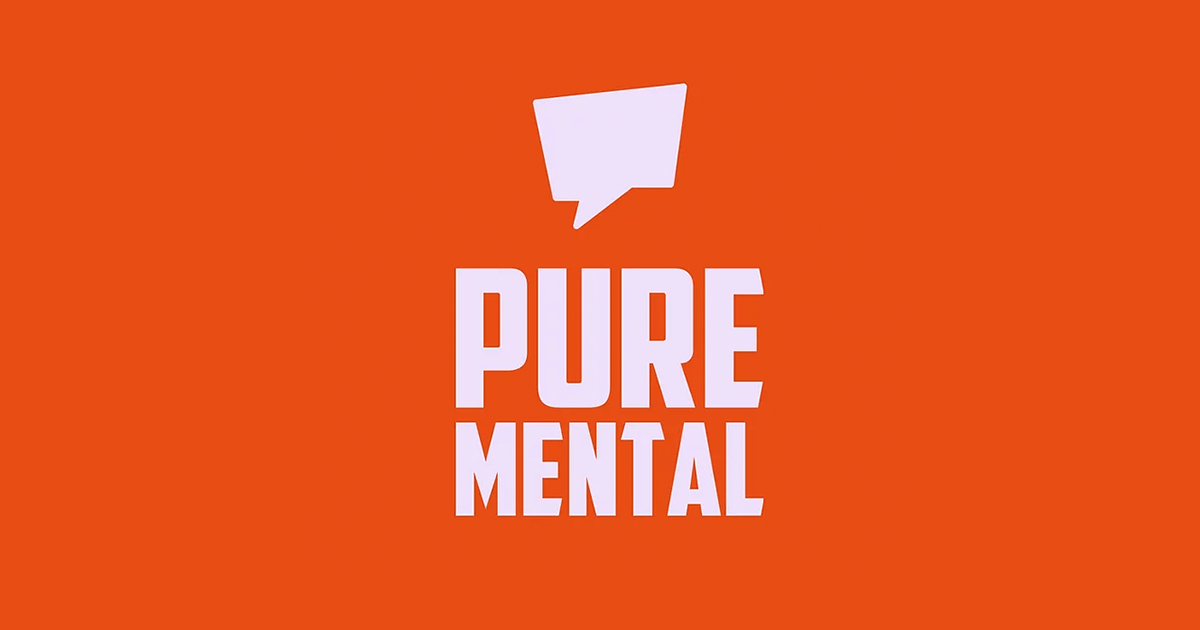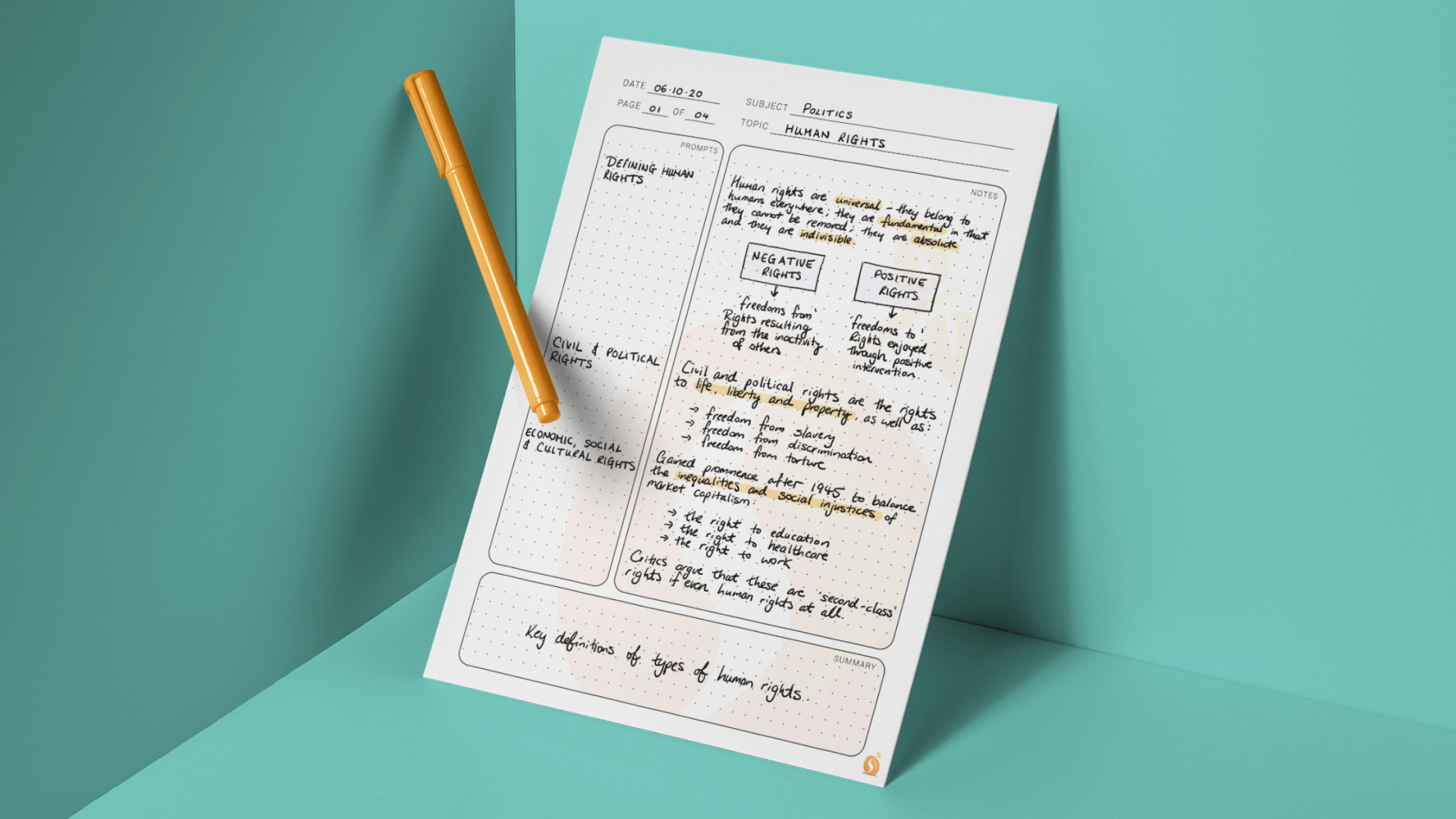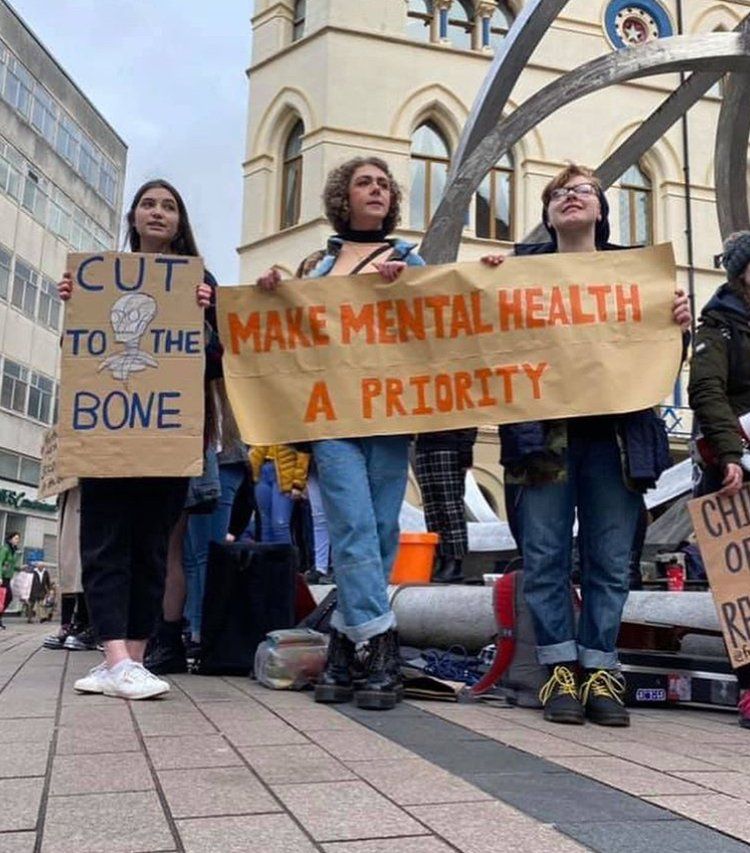Pure Mental NI’s student-led approach towards mental health
Pure Mental NI is Northern Ireland’s first mental health organisation to be founded and entirely led by students. It is currently ran by four teenagers - Jay Buntin, Matthew Taylor, Rachael Dobbin and Owen McClure - all of whom are passionate about addressing the mental health support issues within our education system.

Pure Mental NI have established student-led committees in a number of schools across Northern Ireland, they have a student-led podcast aimed at young people and, throughout this year, they have been working tirelessly with the NI Executive to campaign for better mental health support within schools.
In this article we take a look at their work and examine why student-led mental health initiatives can play a fundamental role in a whole-school approach towards supporting the emotional development and wellbeing of young people.
ABOUT PURE MENTAL NI
Pure Mental NI was set up in late 2019 by Jay Buntin and Matthew Taylor - both of whom were studying for their A-levels at a grammar school in Co. Down at the time. Matthew and Jay had identified an issue within the education system - a lack of any emphasis on student-led, mental health support provision within schools. Both students had witnessed how this lack of structured mental health support within schools had left many of their friends and peers feeling isolated and unsure of who to turn to for help. This, combined with their own experiences with mental health, encouraged Jay and Matthew to look at how student-led committees could be established within schools to act as a first port of call and peer support service for students.
Whilst, by day, both teenagers were attending school, completing coursework and preparing for exams, outside of school hours they began to meet with political representatives and policy makers to turn their idea into a movement. Pure Mental NI was born. In January 2020, Pure Mental NI held a mental health rally in Belfast to draw attention to the lack of mental health support in schools in Northern Ireland. This received widespread media coverage and Pure Mental NI gained cross-party support for their calls for reform. Matthew and Jay continued to campaign for institutional changes to be made to allow for better mental health support to be incorporated into the education system and, to date, Pure Mental NI has established 25 student-led mental health committees in schools across Northern Ireland.
It is impressive to see how two seventeen-year-old students have achieved so much while navigating through their own pressures of A-level exams and university applications. With the school closures during lockdown earlier this year, Matthew and Jay expanded the services of Pure Mental NI to include the Pure Mental Podcast, where young people can tune in to listen to other teenagers talk about various topics surrounding mental wellbeing. This doesn’t just show their passion for what Pure Mental NI aims to achieve, but also their ongoing commitment to address the feelings of isolation and loneliness that drove them to start Pure Mental NI in the first place. If ever there was a pertinent time for young people to have a podcast where they could listen to local students of a similar age to them and gain some assurance that they weren’t alone, it was during the school closures this year. Matthew and Jay should be strongly commended for setting up the programme so quickly in order to address that need.
Pure Mental NI’s overarching aim is to see the establishment of student-led mental-health committees in every secondary school in Northern Ireland. Through student-led committees, the intent is not only to provide continued peer support for students in schools, but also to provide an open and safe platform where students can voice their concerns and, in turn, Pure Mental NI can therefore communicate these concerns to those in government. In this respect, Pure Mental NI has the power to provide students with a direct channel of communication to those representing their interests at an institutional level. The power of grassroots movements cannot be underestimated when it comes to the topic of institutional change - and it is clear that greater representation through the direct input of young people is needed when it comes to reforming the systems that they spend most of their adolescent lives in.
RESEARCH ON MENTAL HEALTH AND WHOLE SCHOOL APPROACHES
It is universally accepted that the institution of education serves not only to develop the cognitive skills of children, but also to provide them with the social and emotional skills needed to live as responsible and healthy adults within a civilised society.
A recent report (Khan, 2016) shows that primary school children aged between 5-10 enjoy good mental health overall but, on average, two children in every average-sized class will have a mental health condition. Secondary school children aged between 11-15 see an increase in mental health issues, with one in every eight children having a mental health condition. Less than 50% of children in this age group who speak to a professional are willing to approach a teacher or school staff member, with a preference shown for less formal, non-patronising counselling services where solutions are found through collaborative approaches and relationship building. For older students who fall into the 16-25 age category, one in five experience a mental health condition. In this age group, the main sources of help are found through friends and online resources, although research indicates that almost 50% of individuals in this category feel that they should just handle the problem themselves without seeking help.
Given the pressure that schools are placed under to perform well academically, it is unsurprising that priority - when allocating time and resources - is often placed on the core curriculum. This is perhaps even more evident at secondary level when students are preparing for GCSE and A-level exams - a critical time for their emotional development and understanding of self, yet a time when all emphasis seems to be directed towards academic performance.
Emotional development and academic performance are not mutually exclusive of one another either; a study conducted by Durlak et al. (2011) on over 200,000 students demonstrated that when the emotional skills of students are promoted within the school environment, their academic outcomes increase as a result. The same study also found that social and emotional development was effective when delivered by those already in the school body, without any particular need for visitors to come into the school to provide this support.
Allard (2019) points out that in Ofsted’s 2019 framework for school inspections, no mention is made of how schools can implement a whole-school approach towards emotional development and mental health, despite the growing body of research that shows its effectiveness. A whole-school approach towards promoting mental health involves creating a culture - a school ethos - that represents open dialogue, collaboration between staff and students and a positive emphasis on providing a safe environment that nurtures the emotional development and mental wellbeing of all individuals within the school family (Weare and Nind, 2011). It is a positive indication that the Northern Ireland Executive is placing emphasis on this need for schools to adopt a whole-school approach to promote positive mental health and wellbeing, as indicated in their Protect Life 2 strategy which was published last year.
The urgent need for this type of school ecology came up in a recent Pure Mental Podcast episode, where the student presenters discuss the obstacles that they faced when trying to get mental health support in school. They highlight that there was no clear signposting within their school environment for students to know how to get support within school for their mental health, and that it was an intimidating process to approach the front desk to ask a staff member for help. In this sense, it is clear how a student-led service could provide an alternative first point of contact for any students who feel unsure or uncomfortable about approaching a designated member of staff who they may not be familiar with.
There is also a clear difference between simply providing guidance on how to seek mental health support and creating a school environment that actively fosters a regular, transparent and open forum for dialogue about mental wellbeing concerns. Research indicates that, on average, there is a delay of ten years between the point at which a young person first experiences mental health problems and the point at which they actually receive help - with only 25% of children in school ever actually receiving support for a diagnosable problem (Khan, 2016).
Pure Mental NI point out that while there may be mental health ‘talks’ scattered throughout a student’s time in school or posters put up on noticeboards, those are not sufficient in equipping students with the information and resources they need to seek support at a later time, if that need arises. They argue that in many cases, the mental health support services that they experienced themselves in school felt more like a box-ticking exercise, rather than a whole-school approach that gave the assurance that their mental wellbeing was an area of priority.
Only 25% of children in school receive support for a diagnosable mental health condition
In this respect, it is clear why a whole-school approach towards positive mental wellbeing is necessary in order to provide continued support and consistent signposting for students. Mental health problems are disproportionately higher in Northern Ireland in comparison to England, Scotland and Wales. One in five adults have a mental health condition in Northern Ireland - a rate that is 25% higher than that of England. The latest National Confidential Inquiry into Suicide and Safety in Mental Health report shows that Northern Ireland also has the highest suicide rate in the United Kingdom and, whilst suicide rates in England, Wales and Scotland have been declining since 2013, the rate in Northern Ireland has consistently risen since 1970. Younger people are also more affected in Northern Ireland, where the highest rates of suicide are seen in people in their 20s - which is in contrast to the rest of the UK where the highest rates are seen in people in their 40s.
Mental health support has often been described as a Cinderella service due to the neglect and lack of priority that is shown for it in health budgets. Despite the fact that Northern Ireland has the highest rates of mental health problems and suicide in the UK, it also has the lowest rate of funding allocated towards mental health services. In 2016-17, just over 5% of the health budget in Northern Ireland was directed towards mental health - this was in comparison to the 13% allocated in England during that period. Free counselling services provided by third sector organisations have often been unsustainable due to a lack of funding. Indeed, in Northern Ireland, progress in this area is not only hampered as a result of limited funding or resource distribution, but also because of political obstacles. For almost five years, Northern Ireland was the only region in the UK that failed to have an up-to-date suicide prevention strategy in place because the collapse of the Executive meant that the Protect Life 2 strategy sat in draft format and was not officially published until the end of 2019.
While mental health support services continue to call for greater funding and resources, it makes sense to consider how the promotion of positive mental health can be integrated into school eco-systems using existing resources. Peer-led, mental health committees do not require substantial funding, given that they are ran by students and operate within a structured framework across schools. Pure Mental NI envisages that these committees will contribute towards a whole-school approach to mental health by fostering that environment of open dialogue and clear signposting for support that is so clearly needed within many of our schools - particularly at secondary level. As an organisation that works directly with students of disadvantaged backgrounds, we are often confronted by the debilitating impact that a lack of mental health support in school can have. We believe that Pure Mental NI has the potential to transform how schools promote positive mental health by providing students with the power to have direct input into lobbying, by giving them the autonomy to have their voices heard through campaigns and, most importantly, to learn in a school environment where positive mental health is fostered through open dialogue between students, teachers and staff in a transparent and consistent format.
HOW WE CAN SUPPORT PURE MENTAL NI
Pure Mental NI is led by full-time students and, for that reason, they do need financial support to allow them to continue to expand upon their student-led school committees, to continue their campaign work and to improve upon the running of their podcast. They require funding for their domain name and annual web hosting costs, microphones to increase the sound quality of their podcast, printed materials and other running costs which they have detailed on their fundraising page. If you can contribute anything towards their Go Fund Me - their aim is to reach £1000 - then you’ll be greatly supporting Pure Mental NI in their expansion and campaign work to promote positive mental health in schools over the upcoming months.
Pledge your support here: https://www.gofundme.com/f/pm3p9-pure-mental-ni
You can also show your support for the work that Pure Mental NI are doing by sharing their updates on social media to spread the word about their work.
If you are keen to see a Pure Mental NI student-led committee in your school, email them or contact the Secondary Students’ Union of Northern Ireland if you are a member and they will forward your request to the organisation.
Share this Article:
Join our Facebook community:














